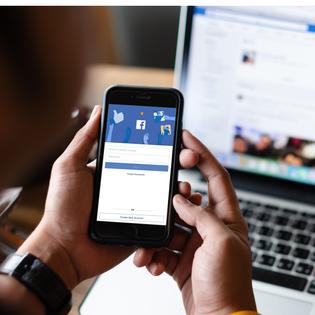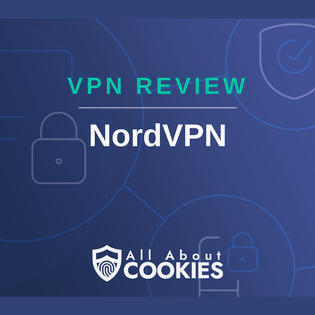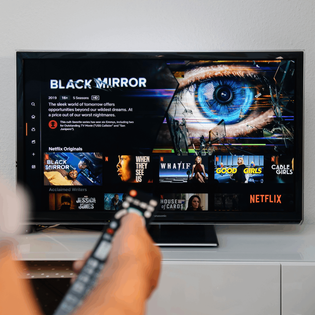Advertiser Disclosure
All About Cookies is an independent, advertising-supported website. Some of the offers that appear on this site are from third-party advertisers from which All About Cookies receives compensation. This compensation may impact how and where products appear on this site (including, for example, the order in which they appear).
All About Cookies does not include all financial or credit offers that might be available to consumers nor do we include all companies or all available products. Information is accurate as of the publishing date and has not been provided or endorsed by the advertiser.
Editorial Policy
The All About Cookies editorial team strives to provide accurate, in-depth information and reviews to help you, our reader, make online privacy decisions with confidence. Here's what you can expect from us:
- All About Cookies makes money when you click the links on our site to some of the products and offers that we mention. These partnerships do not influence our opinions or recommendations. Read more about how we make money.
- Partners are not able to review or request changes to our content except for compliance reasons.
- We aim to make sure everything on our site is up-to-date and accurate as of the publishing date, but we cannot guarantee we haven't missed something. It's your responsibility to double-check all information before making any decision. If you spot something that looks wrong, please let us know.
A virtual private network (VPN) allows you to protect your browsing history, location, and other data when using the internet. If you’re looking for enhanced security, would multiple VPN connections help you?
A double VPN can give you added security by routing your connection through more than one encrypted server, but it might not be necessary. Many of the best VPN providers offer a double VPN feature, but it could come at an extra cost.
To understand whether you need a double VPN, let’s look at what it is, how it works, and the pros and cons of using one.
Should you use a double VPN?
Double VPN pros and cons
What are the best VPNs with a double VPN feature?
Double VPN FAQs
Bottom line
What is a double VPN and how does it work?
A double VPN works by sending your information through two encrypted VPN servers, doubling the security of your data. A double VPN connection initially encrypts your data from your device by routing it through a remote VPN server. From that point, the data is then re-encrypted by sending it through a second VPN server.
Here’s how your data is protected when using a double VPN:
- When you head to a website, your VPN provider encrypts your request and then encrypts your activity on the website.
- After this initial encryption, the information is then sent to the second server, where it is encrypted a second time.
Is a double VPN the same as a VPN chain or multi-hop VPN?
There are several names for a double VPN, including a VPN chain or a multi-hop VPN. These solutions are all the same, providing double encryption when using a VPN.
There are also other solutions like an Onion over VPN, which are similar to a double VPN but not quite the same. Onion over VPN encrypts your internet traffic with a VPN server, then sends it through The Onion Routing (TOR) network for additional encryption. After that, your data is sent through additional VPN servers to provide extra encryption.
A double VPN and a VPN over VPN are similar but not necessarily the same thing. A VPN over a VPN uses two different VPNs to create your own double VPN. While a double VPN is a service offered through a single VPN provider to encrypt your information twice.
Should you use a double VPN?
A double VPN adds more security to your browsing data and location, but it’s not necessary for all instances.
A double VPN may be beneficial when you need increased security or want to ensure your IP address is securely hidden. This may be because you are in a country with heavy censorship, you’re accessing confidential information, or you want to protect your information when using public Wi-Fi.
Here’s when using a double VPN could be beneficial:
To protect your data
One of the best uses for a double VPN is to ensure your data is protected. In many cases, a single VPN will be enough to protect your online activity, but in some cases, especially when accessing confidential or sensitive information, a double VPN may be needed. When using a double VPN, your private data is encrypted twice, making it protected at a level above a typical VPN.
While most VPNs are sufficient for encrypting your data, a double VPN adds an extra layer of encryption in case the initial encryption is intercepted and decrypted.
To avoid censorship or government surveillance
Another use for a double VPN is when you’re trying to circumvent government surveillance or censorship. Journalists and political activists may use a double-hop VPN app to add extra security to their online connection and access censored information and websites.
A double VPN can ensure that your identity, including your IP address, is secure when you’re avoiding internet censorship. When using a double VPN, you can route your traffic to a server in an uncensored country with the first VPN and route it to a censored country with the second VPN. This means your connection will look like it comes from the first VPN server location and can allow you to circumvent any government restrictions.
To secure public Wi-Fi
Using public Wi-Fi can be dangerous for the security of your data. A double VPN provides an additional level of security when you’re browsing using public Wi-Fi.
You may want to use a double VPN if you’re on public Wi-Fi and accessing sensitive information. A double VPN can provide peace of mind when working with important or classified information at the airport or on public transportation.
When is a double VPN not necessary?
A standard VPN offers privacy when browsing the internet and is sufficient for most of your browsing activities.
If you’re looking to protect your day-to-day browsing history from your internet service provider (ISP), access geo-restricted content, or mask your IP address, a double VPN is likely not necessary.
Double VPN pros and cons
A double VPN does help increase your security and privacy, but does that come at a cost? When using a VPN, privacy is likely your number one focus, but did you know that using VPNs increase data usage, can affect your internet speed, and more?
Here’s a look at the drawbacks and benefits of a double VPN:
- Double encryption: The biggest advantage of a double VPN is the encryption. This gives users two layers of protection to help further protect internet privacy and security.
- IP address security: A double VPN also uses two IP addresses which helps ensure that your IP address remains private.
- Anonymous location: The dual IP addresses mean your actual location is masked twice, making it almost impossible to track your location.
- Slower speeds: When using a double VPN, your data needs to go through two different servers and encryption processes, which can slow down your internet connection speeds.
- Reduced server options: Since a double VPN uses two servers, it may limit the server options available to use.
- Too slow for some applications: A double VPN may slow down your browser speeds so much that you’re unable to game or torrent files.
What are the best VPNs with a double VPN feature?
If you’re looking for a double VPN, finding the right provider is important. Many VPN clients offer a double VPN as well as other important privacy features like a kill switch and no-logs policy.
Here are three VPN providers we recommend, along with how much each VPN costs.
3 best double VPN services
| VPN | Starting price | Number of double VPN servers | Encryption methods | Learn more |
 NordVPN |
$2.99/mo | 82 servers | AES-256-GCM | Get NordVPN |
 Surfshark |
$1.99/mo | 12 servers | AES-256-GCM | Get Surfshark |
 hide.me |
$2.59/mo | 2,000 servers (paid only) | AES-256 | Get hide.me |
How to use the NordVPN double VPN service
One option for a double VPN provider is NordVPN.
NordVPN’s double VPN is included in its standard account. After you’ve signed up and downloaded the NordVPN app, follow these instructions to gain access to Nord’s double VPN:
- Open the NordVPN app.
- Head to the “Specialty Servers” section at the bottom of the server list.
- Select Double VPN to get connected. You can also manually select specific servers that are best for your needs.
Double VPN FAQs
Is double VPN overkill?
A double VPN isn’t overkill if you need an extra layer of security. A standard VPN is enough to protect your everyday browsing data, streaming when traveling abroad, or circumventing internet censorship. However, a double VPN may be the right solution if you need to be extra cautious with sensitive information or want to ensure privacy from government censorship.
What’s better, double VPN or Onion over VPN?
A double VPN and Onion over VPN are two different services and might be better for different situations, but Onion over VPN provides more layers of encryption. Onion over VPN is used when accessing Tor specifically, while a double VPN can be used to access the internet without using Tor.
Can I use two VPNs at the same time?
Yes, you can use two VPNs at the same time. However, it isn’t as simple as turning on two VPNs. The VPNs may conflict and cause problems as you try to connect them both.
To use two VPNs at the same time and do it successfully, you may need to set up a virtual machine to run the second VPN. When setting up two VPNs, you want to make sure that the two providers don’t overlap in their efforts. This can cause errors as you browse.
Does ExpressVPN have a double VPN?
Bottom line
In most cases, a standard VPN is sufficient to protect your internet activities and help you get around geo-restrictions. However, if you’re looking for more security and to avoid government censorship, a double VPN can help. Just be aware that double encryption can slow down your connection speed.
A double VPN is accessible through various VPN providers, including some of our top recommended VPNs:
If you’re accessing sensitive information or traveling to a foreign country where your internet privacy is critical, a double VPN may be the right solution.
-
High-quality VPN offering safety and speed
-
Loads of servers for multiple connection options
-
Works with popular streaming services, including Netflix
-
Too many confusing plans





